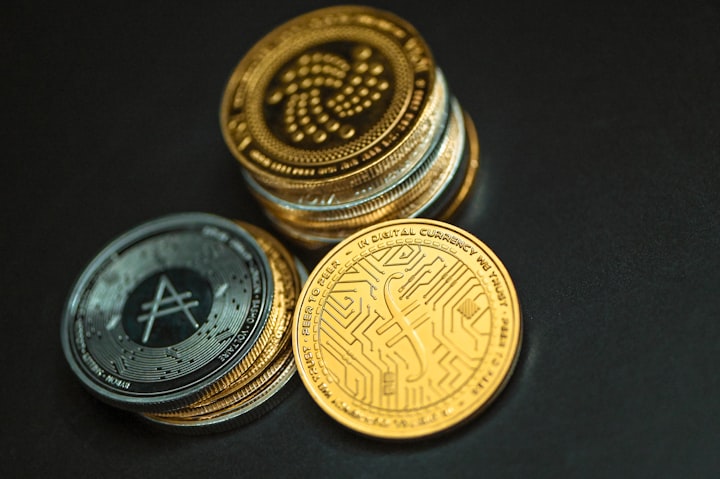Fear Not, China Is Not Banning Cryptocurrency
In 2008, after the financial crisis, a paper titled "Bitcoin: A Peer-to-Peer Electronic Cash System" was published, detailing the concept of a payment system. Bitcoin was born
itcoin has captured the world's attention as a use of blockchain technology and as an alternative to fiat currencies and commodities. Dubbed the next best technology after the internet, blockchain has provided solutions to problems that we have left unaddressed or ignored for decades. I won't get into the technical side of things, but here are some articles and videos I recommend. Work?? Fast-forward to today, February 5th, to be precise, the Chinese authorities have released a new cryptocurrency ban rule book. The Chinese government was already doing this last year, but many are avoiding it through foreign exchange. We are now ordering the all-powerful "Chinese firewall" to block access to foreign exchange and prevent citizens from making cryptocurrency transactions. To learn more about the Chinese government's stance, let's go back to 2013, when Bitcoin became popular among Chinese citizens and its price skyrocketed. Concerned about price volatility and speculation, the People's Bank of China and five other government ministries released an official notice in December 2013 titled "Notice on Preventing Financial Risks of Bitcoin" (link is Mandarin). Several points were highlighted: 1. Due to various factors such as limited supply, anonymity and lack of a centralized issuer, Bitcoin is not an official currency and cannot be used on open markets. Virtual assets. 2. All banks and financial institutions are not authorized to provide Bitcoin-related financial services or engage in Bitcoin-related trading activities. 3. All businesses and websites offering bitcoin related services must be registered with the required ministries4. Due to the anonymity and cross-border nature of Bitcoin, organizations providing Bitcoin-related services must implement preventive measures such as KYC to prevent money laundering. Any suspicious activity such as fraud, gambling or money laundering should be reported to the authorities. 5. Organizations providing Bitcoin-related services should educate the public about Bitcoin and the technology behind it, and should not mislead the public with false information. Simply put, Bitcoin is classified as a virtual commodity (such as in-game credit) that can be bought and sold in its natural form and cannot be exchanged for fiat currency. It cannot be defined as money as it serves as a medium of exchange, a unit of account and a store of value. The notice dates back to 2013 but is still relevant regarding the Chinese government's stance on Bitcoin and, as mentioned above, makes no mention of a ban on Bitcoin and cryptocurrencies. Rather, regulation and education on Bitcoin and blockchain will play a role in the Chinese crypto market. A similar notice was issued in January 2017, again emphasizing that Bitcoin is a virtual commodity and not a currency. In September 2017, due to the initial coin offering (ICO) boom, another notice was released entitled "Notice on the Prevention of Financial Risk of Issued Tokens". Shortly thereafter, Icons were banned, and Chinese exchanges were investigated and eventually shut down. (hindsight is 20/20. They made the right decision to ban his ICO and stop stupid gambling). In January 2018, another blow was dealt to the Chinese cryptocurrency community when mining operations faced serious raids due to excessive power consumption. While there is no official explanation for cracking down on cryptocurrencies, capital controls, illegal activities, and protecting citizens from financial risks are some of the main reasons given by experts. In fact, Chinese regulators have introduced tighter controls, such as foreign withdrawal caps and restrictions on foreign direct investment, to limit capital outflows and secure domestic investment. The anonymity and ease of cross-border transactions also make cryptocurrencies a popular means of money laundering and fraud. At its peak, China accounted for over 95% of her global bitcoin trading volume and her three-quarters of mining operations. As regulators stepped in to control trading and mining operations, China's dominance has dwindled significantly in exchange for stability. The future of cryptocurrencies is being cast a shadow as countries such as South Korea and India lag behind in cracking down. (Here I repeat my point: States regulate cryptocurrencies, not ban them). No doubt more countries will join in the coming months to help contain the turbulent crypto market. Indeed, some orders were long overdue. Over the past year, cryptocurrencies have experienced unprecedented price volatility, with IOS happening literally every other day. The 2017 market capitalization increased from $18 billion in January to an all-time high of $828 billion. Despite the crackdown, the Chinese community is surprisingly thriving. The online and offline communities are thriving (I personally attended some events and visited some companies), and blockchain startups are booming all over China. Leading blockchain companies such as NEO, TUM and Chains have attracted a lot of attention in the country. Startups such as Nebulae, High Performance Blockchain (HUB) and Bib ox are also gaining momentum. Even giants like Alibaba and Tencent are exploring the potential of blockchain to power their platforms. The list goes on and on, but you get my point. Be Buggy! The Chinese government has also adopted blockchain technology and has stepped up its efforts in recent years to help build a blockchain ecosystem. China's 13th Five-Year Plan (2016-2020) calls for the development of promising technologies such as blockchain and artificial intelligence. We also plan to strengthen our research on the application of fintech in regulation, cloud computing and big data. Even the People's Bank of China is testing a prototype blockchain-based digital currency. However, it has yet to see acceptance by the Chinese public as it is likely to be a centralized digital currency with cryptographic technology. The Blockchain Technology and Industry Development Forum is part of other initiatives by the Chinese government to support blockchain development in China. A recent report by the China Blockchain Research Center titled "China Blockchain Development Report 2018" details the development of the blockchain industry in China in 2017. In a separate section, the report highlights the optimistic outlook for the blockchain industry and the significant attention it received from VCs and the Chinese government in 2017. In summary, despite its enforcement, the Chinese government has taken a more positive stance on blockchain technology than on cryptocurrencies and mining businesses. China wants to control cryptocurrency and China will control it. Repeated enforcement by regulators should protect citizens from cryptocurrency economic risks and limit capital outflows. Currently, it is legal for Chinese citizens to own cryptocurrencies, but they are not allowed to conduct transactions. Hence, the ban on exchanges. There is no doubt that the Chinese cryptocurrency market will make a comeback once the market stabilizes in the coming months (or years). Blockchain and cryptocurrencies go hand in hand (except for private chains that don't require tokens)






Comments
There are no comments for this story
Be the first to respond and start the conversation.